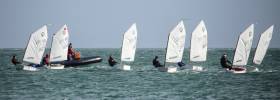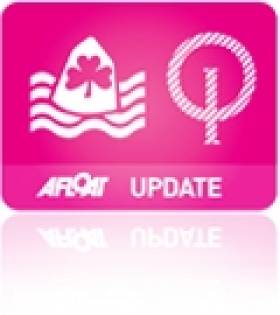Displaying items by tag: Brassed Off Cup
Howth Yacht Club’s annual Brassed Off Cup is once again being held on its traditional date of Good Friday, which falls this coming Friday 19 April.
The Optimist dinghy event is a great opportunity for junior racers to dust off their gear and get out to enjoy sailing in what’s forecast to be fine spring weather in the safe waters just north of Howth Harbour.
It will also help many sailors sharpen their skills for the trials which take place at the Royal Cork Yacht Club the following week.
Howth Yacht Club says the event has been built into a very popular and well-attended date on the Optimist sailing calendar over the past few years, with more than 60 young sailors from across Dublin expected to take part, including expected good participation from novice and regatta fleet sailors.
Three short races are planned from noon. The Notice of Race, Online Entry and Sailing Instructions are available on the HYC website HERE.
Friday will also see the prizegiving for Howth’s IceBreakers at 4.15pm after last Sunday’s race was called off due to the poor weather.
Weather Forces Cancellation of Brassed Off Cup
#Optimist - Howth Yacht Club has announced that the annual Brassed Off Cup for Optimists scheduled to be held tomorrow 29 March (Good Friday) has been cancelled due to the persistent wintry conditions on the East Coast.
The Brassed Off Cup is normally the highlight event capping the end of the club's Brass Monkeys Spring Series - but the unseasonable snowy weather has put paid to the contest for 2013. Better luck next year!































































